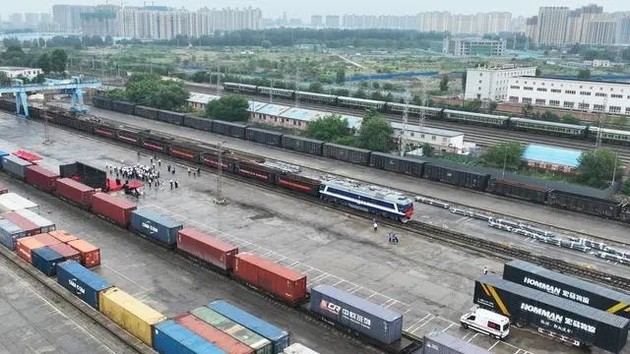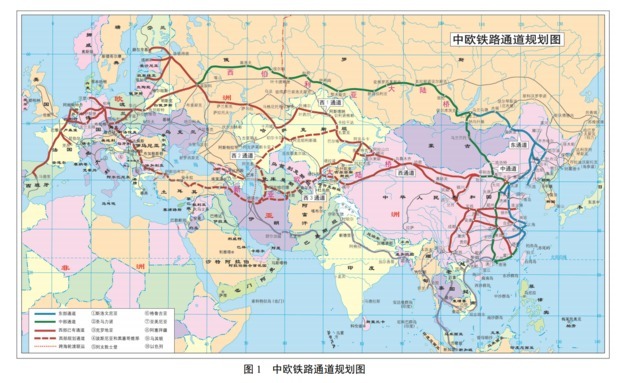
Photo/Xinhua
After nearly three decades of anticipation, a new cross-border railway is finally on the horizon.
Back in the 1990s, China and Uzbekistan first proposed the concept of the China-Kyrgyzstan-Uzbekistan railway. Now, the project has made significant strides. Recently, the signing ceremony for the intergovernmental agreement on the China-Kyrgyzstan-Uzbekistan railway project was held in Beijing. Analysts suggest that this marks the beginning of substantial construction work for the railway.
According to the plan, the China-Kyrgyzstan-Uzbekistan railway is set to depart from Kashgar in Xinjiang, China, heading westward through Kyrgyzstan and into Uzbek territory. The total length of the railway is approximately 523 kilometers, with 213 kilometers within Chinese borders (260 kilometers in Kyrgyzstan and 50 kilometers in Uzbekistan).
The China-Kyrgyzstan-Uzbekistan railway will not only add a new land-based international corridor for Xinjiang but may also further alter the transportation landscape of China's western regions.
Traditionally, China's westward passage has been through the Trans-Siberian Railway in Russia or via the Khorgos and Alashankou ports into Kazakhstan, then through Russia and Belarus, and into Europe. In the southern direction of the west, specifically from the southern part of Xinjiang in Kashgar, there has been a lack of a major westward corridor to South Asia and the Middle East; this line is the China-Kyrgyzstan-Uzbekistan railway.
Once completed, the China-Kyrgyzstan-Uzbekistan railway will become the shortest land route connecting China with Central Asian countries. The railway distance from East Asia to the Middle East and Southern Europe will be shortened by about 900 kilometers, saving 7 to 8 days. Kashgar, as the starting point of this vital artery, is expected to usher in a new period of opportunity.

China-Europe Express Railway Development Plan (2016-2020)
Different from the common perception of "coastal special economic zones," Kashgar is China's youngest special economic zone and the first inland one. Last year, the establishment of the Xinjiang Pilot Free Trade Zone was approved, tasked with creating a golden passage to Eurasia and serving as the vanguard of China's opening to the west.


 川公网安备 51019002001991号
川公网安备 51019002001991号





